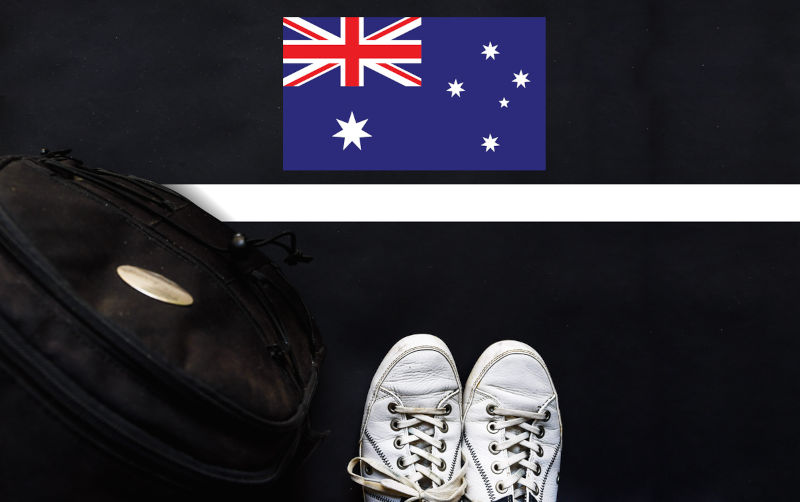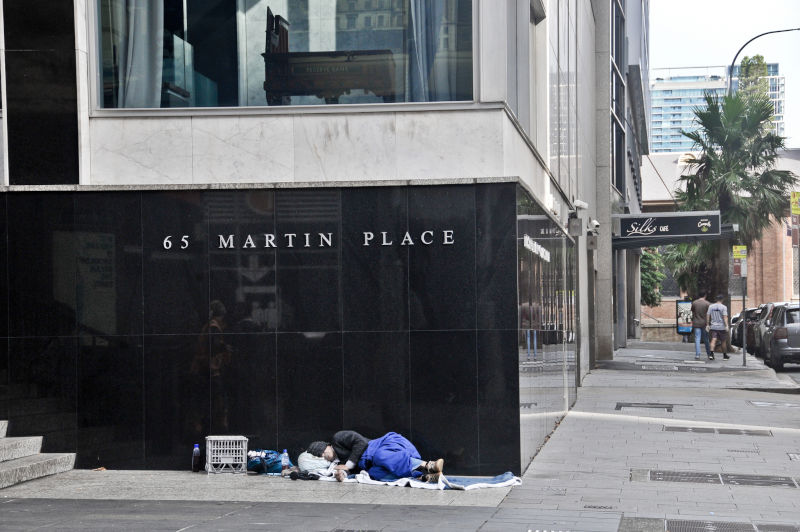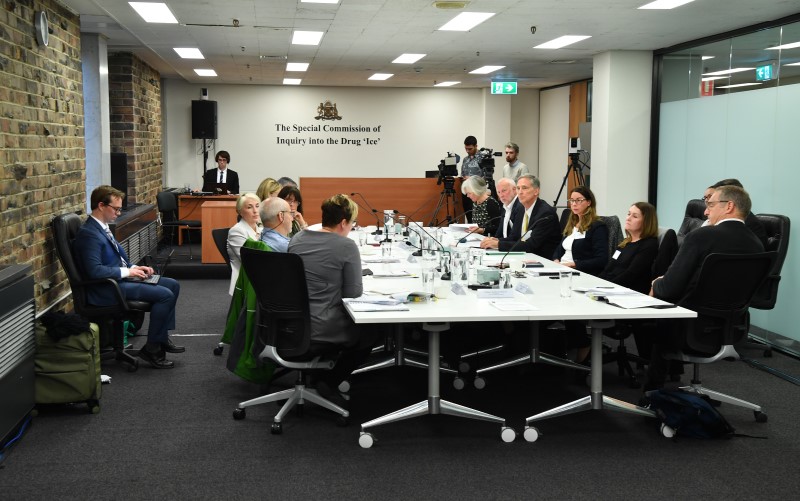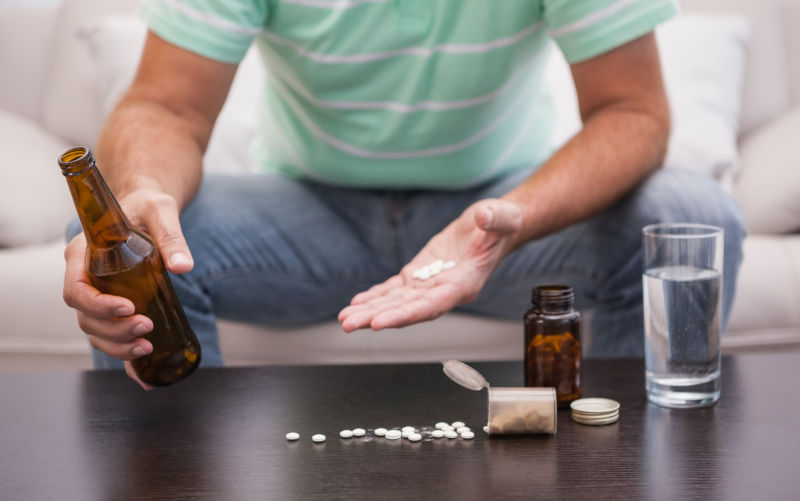The second New South Wales Drug Summit will be held in regional centres for two days in October and the final two days will be in Sydney on the 4th and 5th December to be co-chaired by Carmel Tebbutt and John Brogden – a balance of politics. (more…)
Ian Webster
-

From Vietnam to Australia, a refugee doctor’s journey
On 23 November, a boatload of asylum seekers was dispatched to Nauru for offshore detention. They were found wandering the coast of Western Australia by Aboriginal people, three days earlier. This has been Australian policy for unauthorised boat arrivals since 2013; 10 arrivals in the past year. But there was a time when asylum seekers were welcome. (more…)
-

Visiting the doctor in the age of AI
On 8 May, Four Corners (Artificial Intelligence Rising: the new reality of artificial life), portrayed an isolated man’s relationship to a robotic woman and a sex doll, and in another scenario, artificial memories were generated for family members to communicate with the long dead – weird stuff. (more…)
-

What’s wrong with addiction
As I watched the Four Corners program, Vape Haze, in 2022, I was struck by the program’s focus on addiction, a bad thing. A mother spoke of her devastation when her 16-year-old daughter told her she was vaping. (more…)
-

Reinventing the NDIS
What was in the minds of the originators of the NDIS, of the nature of disability? How did they see the role of the NDIS within existing social, health, and economic, environments? (more…)
-

Learning from people who are homeless
A homeless person’s life, burdened, as it often is, by physical and mental illness, addiction, and social disadvantage, can lead us to think their life is meaningless and of no value; but we can be so wrong, they have much to teach us. (more…)
-

Australia must re-assert its stand on harm minimisation drug policies
Is it possible for prohibition and law enforcement to compete against the ubiquitous and increasing use of mind-altering drugs?
-

Dealing with community despair in the time of Covid
As the public health measures work to suppress the pandemic, community relations and connections are at risk. A sense of community, togetherness and mutual support is needed, now and in the long-term.
-
Ageism in the time of Covid
The coronavirus pandemic must cause us to re-appraise the value we attach to the lives of others, especially vulnerable people and those who are old.
-
The ‘ecology of attention’ in health and social care
Every single transaction expends precious time of attention; time which is even more precious amidst the escalating claims on our attention. Those needing support and treatment are hoping to have their circumstances and problems understood, they seek attention, attention to the way their lives have been affected. (more…)
-
Barriers to the NDIS
The planned introduction of independent assessments for the National Disability Insurance Scheme (NDIS) will further disadvantage those with complex and not obviously manifest disabilities. For marginalised people with disabilities there are questions. (more…)
-
The people with disabilities who regularly miss out
Disability has been co-opted by bureaucracies, professional bodies and institutions, often in a harmful way … Instead of seeing welfare as a social drain, ‘faring well’ should be an act of decency, a helping hand to a contributing life.
-
‘Rage against the dying of the light’ in the way we treat elderly people
The alienation of elderly people from social life is abundantly evident in the impact of coronavirus on society as it exploits the vulnerable and defenceless.
-
IAN WEBSTER. The UK and COVID-19; lessons for the UK and some for Australia
It is with bewilderment and concern we watch as COVID-19 overwhelms the UK’s health and social systems. There are lessons to be learnt for Australia, too.
-
IAN WEBSTER: Public health and the nanny state.
Behind our backs, public health became the poor cousin of biomedicine and was dismissed as ‘drains and sewerage’. How wrong we were!
-
IAN WEBSTER. Too many experts at a time of crisis.
This is a time when advice needs to be considered, balanced, respectful and well-founded.
-
IAN WEBSTER. The retreat from patients, a letter to young doctors
The idea that the pressures of patient care cause doctors to withdraw from direct clinical work has been in the background of my observations of my colleagues and their work since the 1970s.
-
IAN WEBSTER.- Advocacy is hard going against the alcohol lobby.
It is a loss powerfully felt,but subdued. Not by politicians or the alcohol industry, but by doctors and nurses in the clinics and rehab. centres. The highly respected Michael Thorn has departed from the Foundation for Alcohol Research and Education(FARE) as the CEO. What is the real story? (more…)
-
IAN WEBSTER. US opioid epidemic: a warning to Australia?
Two ABC documentaries – ‘Opioid America’, Foreign Correspondent, 19th March and on TV Tonight, Louis Theroux, April 2nd portrayed the cycle of addiction in damaged US communities with no hope or future. Both were in West Virginia where opioid deaths are 2 to 3 times higher than other US states. The people and their environments are forever written off. Alarm bells ring.
-
IAN WEBSTER. Of minds imprisoned.
Beyond the image of the vagabond and the impaired bodies and minds of homeless people there are untapped veins of intellect and potential; this is where our focus should be.
“The homeless are our most important dreamers, prophets and poets for they challenge our apathy….” (Sydney from Below, McCarthy F, Matthew Talbot Hostel)
-
IAN WEBSTER. It’s not mental illness, but despair
Aboriginal and Torres Strait Islanders have got it right when they frame the conditions we label as mental illness as issues of social and emotional well-being. They do not consider the endemic problems in their communities, as mental illnesses.
-
IAN WEBSTER: Preventing suicide
The 10th September is recognised as World Suicide Prevention Day.
“The burden of suicide does not weigh solely on the health sector; it has multiple impacts on many sectors and on society as a whole. Thus, to start a successful journey towards the prevention of suicide, countries should employ a multisectoral approach that addresses suicide in a comprehensive manner, bringing together the different sectors and stakeholders most relevant to each context”. Director-General, WHO Preventing Suicide: A global imperative, 2014. (more…)
-
IAN WEBSTER. Drug Reform Series- Drug policy and justice
In the final analysis, drug policy based on prohibition fails to meet the test of fairness and justice in the lives of those most directly affected. (more…)
-
IAN WEBSTER. Government and the medicalisation of disabilities
Each year two thirds of applications for a Disability Support Pension are rejected; a rejection rate which has doubled in 8 years (Christopher Knaus, Guardian, 8 June 2018). (more…)
-
IAN WEBSTER. Welfare sanctions.
To save $204.7 million, the Government plans to impose draconian sanctions on those needing income support who miss appointments, or work interviews, or who don’t take up the jobs proposed for them. That can’t be the real reason, since the dollar savings count for nothing against the inestimable human and economic costs of these impediments. So much for “mutual obligation”. (more…)
-
IAN WEBSTER. Policy failures in mental health
Mental health problems arising out of modern despair have to be tackled with insights gained from the day-to-day lives of society’s outcasts and the social sciences. Matthew Fisher, (Australia’s policy failure on mental health, Pearls and Irritations, 14 December 2017) argues that Australian mental health policies have failed: “(We) are subject to a deafening silence from politicians, organisations and the key individuals who shape Australia’s policy discourse and action on mental health”. The ubiquitous mental health problems arising out of social conditions and chronically stressed lives are neglected: “The social causes of mental illness and their impacts on populations, as something we might act on, are largely hidden”. (more…)
-
IAN WEBSTER. The social harm of alcohol to communities and society
The social harm of alcohol, alcohol’s ‘harm to others’, is a re-vitalised framework for national and international policies to control the marketing of alcohol. (more…)
-
IAN WEBSTER. Lessons from the British National Health Scheme for Australia.
Jeremy Hunt, Health Secretary in the UK, accused Stephen Hawking of a ‘pernicious lie’: “(he) is a brilliant physicist but wrong on lack of evidence.” Stephen Hawking had said his survival for 75 years with motor neurone disease was due to the care he received from the British National Health Service (NHS) and he now feared it was being turned into a “US-style insurance system.” (Guardian Weekly, 25 August). (more…)
-
Specialists versus generalists: A commentary on John Menadue and Peter Brooks
John Menadue and Peter Brooks have mounted powerful critiques of private specialist medical practice in a series in Pearls and Irritations. The nub of their positions is the high fee structure in (private out-patient) specialist practice is out of kilter with community expectations. (more…)
-
IAN WEBSTER. The need for more balanced media reporting of alcohol and illicit drug problems.
To those who work in the health system, ‘ICE’ is but one problem among many and pales into the background of the prevailing problems of addiction and misuse of alcohol and drugs. (more…)
